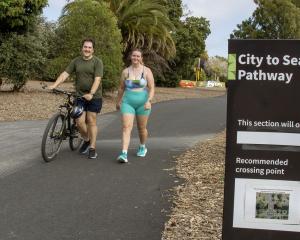American TikTok creator Carrie Rad shared her experiences after nearly three years of living in Aotearoa, revealing her initial shock at Kiwi customs and detailing which she has embraced - and which major taboo she can’t bring herself to break.
Rad said she was beginning to adopt some Kiwi-isms, but admitted she still couldn’t bring herself to swear with the abandon of many New Zealanders.
“The word C*** , I’m not gonna say it,” Rad said, spelling out a highly offensive word that many Kiwis use casually.
“This is a word in the States that is very offensive and is one of the worst bad words that we have. In New Zealand, they say it like it’s no problem at all.
“They’re like, ‘you’re a great C ***, oh yeah, she’s a good C***’ and nobody bats an eye.
“The first time I heard it, I was shocked.”
Another major difference noted was our casual approach to shopping attire, often foregoing shoes and other items of clothing when we head to the shops.
Rad said that Americans would never consider going barefoot and many businesses explicitly ban the practice.
Our work/life balance came in for praise from Rad, who said that it was “much better” than the corporate culture stateside, where she said people were defined by their work.
She noted that Kiwis seemed to really value family time.
Rad also identified Kiwis not tipping as one of the biggest culture shocks.
In the US, hospitality staff often receive rock-bottom wages and rely on tips to supplement their income, making not tipping a major faux pas.
Rad said another was “chips, chips, chips.
“So Kiwis use the word chips for potato chips and for French fries. We call French fries: French fries and potato chips, chips.
“But New Zealanders say chips for French fries and chips for potato chips.
“And also like if you’re getting fish and chips, fish and chips as well.”
Rad’s confusion over root vegetables extended to the use of te reo Māori in describing what she called a sweet potato.
“The Kiwis call sweet potato kūmara.
“It’s the Māori word for sweet potato and I’m pretty sure the rest of the world calls sweet potato, sweet potato,” Rad claimed, ignoring the rest of the non-English speaking world, including the Pacific where kūmara, kumala or kau kau remains a staple part of the diet.
But despite her shock, Rad admitted that she had begun to speak the lingo after years of living here, including words she never previously knew existed.
She said she has swapped “trunk” for “boot” and “afternoon” for “arvo”.
“I say ‘as’ a lot now,” the American export also admitted.
Sweet as, Carrie!












